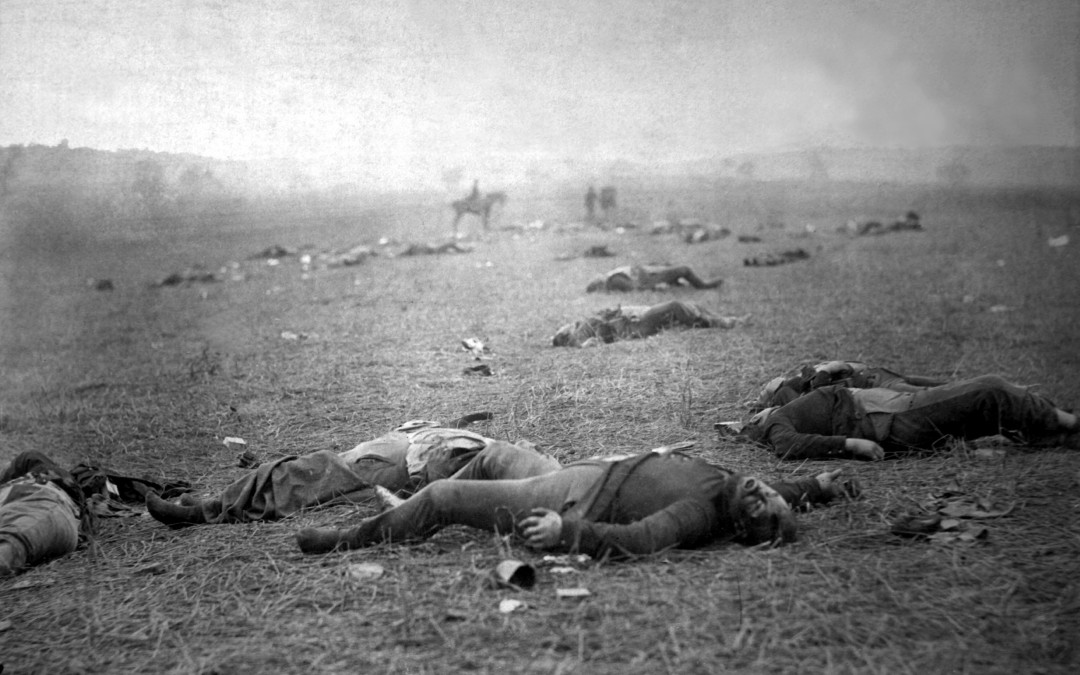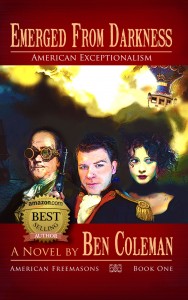Gettysburg: On this day in 1863 Gen. Robert E. Lee’s Army of Northern Virginia clashed with the Union Army of the Potomac under the command of Gen. George Gordon Meade.
Less than three months before, Lee with the aid of the now fallen Gen. Thomas J. Jackson destroyed this same Union Army at Chancellorsville, Virginia. It was a devastating defeat with more than 13,000 Union soldiers casualties.
Gen. Lee reputation as an undefeated Army commander, having perviously vanquished George McClellan, John Pope, McClellan again, Ambrose Burnside, and Joseph Hooker is unparalleled.
Lee is at his high point, as is his Army of Northern Virginia. They are aggressive, hungry, quick, dangerous battle hardened veterans.
Lincoln fatigued with Union losses at the hands of a former Union Army veteran, and hero of the Mexican War, desperately needs someone to stop Lee, and he has called upon George Meade to do it.
Hastily appointed to his command by an exasperated President Lincoln Meade is cautious, defensive minded, and intimidated. He knows Lee’s reputation, and he is sure that Lee has taken his measure.
Meade knows Lee will strike again, but where?
If Meade, with superior numbers, and resources, fighting on home ground, can anticipate, even force Lee to fight him on ground of his choosing, he knows he has the possibility within his grasp to finally put an end to the rampaging Confederate Army.
Having lost the eyes and ears of his army, the intelligence and reconnaissance of Gen. Jeb Stuart and his Cavalry, Lee is in the dark, and has no clue where the Union Army might be lurking. Lee has given strict orders to avoid a general engagement.
Before he engages in another conflict Lee must find the Union Army, identify its location, and close the fist of his divided army, which is spread like probing fingers along the highways of Pennsylvania.
On the first day of July, the crusading armies meet.
Coldly calculated strategy, becomes anxious guesswork, as the forces probe one another’s strength, each unsure as to exactly who, and what is in their front. Neither side is fully aware that each Army is on a collision course in full strength. But like a whirlwind reaping its vengeance under the midday sun, both sides will steadily, and inevitably drawn into the cyclone of war.
And the first day of Gettysburg has begun.
It is a day of untarnished and unvarnished honor, courage, commitment and sacrifice for both North and South.
Men will clash, reel in retreat, rally, and clash again. It is a day of blood, death, and yardage, in ground gained or lost.
Can you hear the hoarse shouted orders of officers? The Crackle of musketry, the roar of cannon, the cries of the wounded and dying, the frightful baying of fallen horses and mules? Can you smell the sweat, and fear, and blood so palpable in the summers heat?
Can you smell the storm of death roiling upon the ground, shimmering like a hell upon the earth?
Can you feel the parched and sandpapery dryness of your throat, the sweat stinging your eyes, and soiling the clothes of your sweat stained uniform?
Can you feel the weight and heft, as you load your rifle with shaking hands, raising it, aiming at smudges of men in front of you?
Can you feel the recoil as it bucks against your shoulder, your bullet contributing to the butchers bill, even as you secretly beg for it to end?
And what do you feel when it all ends, and the day is gone, and night closes in upon the blood soaked ground you lay your head upon?
How do you feel even as you drink deeply of the first water touching your cracked lips, and you smoke a cigarette in silence, watching your brothers stacked like corded wood, for shallow graves.
Darkness falls upon your sacred fields, and the butchers bill is paid, for the day. More than 15,000 Americans are gone now, in dead, wounded, and missing. 9,000 Union, 6,000 Confederate.
And there are still yet two days to go.
But you have survived, at least part of you has.
But another part shall ever remain, with the ghosts and never leave this place.
——(Author’s Note)
This is why, this day, and the days after are important to me. And this is why each flag, Union and Confederate is important to me, one as much as the other. And this is why, history is important to me, because it is my history, and it is yours.
And we must never forget, so that we may never return to, pay that price again.
Ben Coleman,
East Tn, 2016


